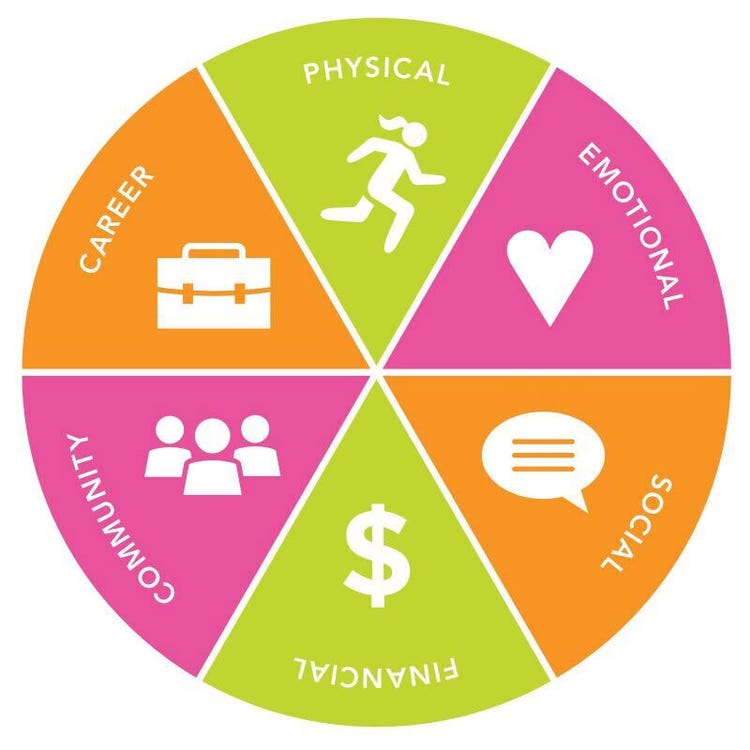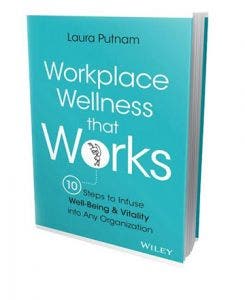The Secrets to Health

Physical routines are only the start.
– Chinese Proverb
No matter which candidate you voted for or where you stand on the Affordable Care Act, one thing we can all agree upon is that health matters. Health is wealth. But for most of us, health is something that we tend to take for granted and find little time to tend to — until it’s compromised.
Typically, health is quantified as the sum of so-called “risk factors” — things like weight, blood pressure, cholesterol or blood sugar level. And, in turn, these risk factors are characterized as being primarily a result of specific lifestyle habits: what we eat, how much we exercise, and whether or not we smoke. In other words, health is usually defined in physical terms. While physical well-being is important, there are other factors that play into our health and well-being, some of them surprising.
For example, did you know that…
- Your boss matters more than your doctor when it comes to the health of your heart?
- Level of education is the number-one predictor of life expectancy?
- People who love what they do are much more likely to live into their nineties?
- Optimists are less likely to develop heart disease?
- Your sex life (shhh!) and other “unmentionables” like your finances have a marked influence on your health?
Physical well-being comprises the basics — healthy eating, physical activity, adequate rest, avoiding harmful substances. But these are only part of the picture. Research shows there are six dimensions, in combination, that literally shape the quality of our lives.

Courtesy of Laura Putnam, Workplace Wellness That Works (WILEY, 2015).
Let’s take a deeper dive into the other five essentials: emotional, financial, social, career and community well-being.
Emotional well-being = Resiliency
Viktor Frankl, Holocaust survivor and author of “Man’s Search for Meaning,” defined the essence of emotional well-being: resiliency. While we may have little or no control over the circumstances in our lives, he explained, each of us has infinite power to choose how we respond to these circumstances. This is what Frankl referred to as our “inner freedom,” and finding it is the key to becoming more resilient.
Here are a few ways to bump up your emotional well-being:
- Plan to restore. Research now shows that stress is not bad, especially in the short term. What matters is how we respond to it. A smart practice is to find activities that help you to proactively restore after a stressful episode, such as getting out into nature, calling a friend, or even taking a moment to breathe.
- Name three good things. A daily dose of naming three good things for six weeks can literally rewire your brain to be more optimistic — and more resilient.
Financial well-being = Effective management of resources
A recent study shows that financial stress actually makes us look older — by as much as 10 years. A first step you can take to start combatting financial stress is to set up default systems, such as automatic payment for recurring bills.
Here are some other steps you can take to boost your financial well-being:
- Talk about it. Start having conversations with friends and family. An honest conversation (and even venting) about money can serve as a powerful antidote to financial stress.
- Invest in experiences. Spend money on experiences (like vacations) instead of things. While love for material items fades, positive memories linger.
Social well-being = Love and connection
As human beings, we are hardwired to be connected to one another. According to Dean Ornish, pioneer in reversing heart disease, love and connection are the most essential aspects of health and recovery from illness.
Here are some steps you can take to boost your social well-being:
- Strive for six. A daily dose of six hours of social time is the magic number needed to maximize your level of social well-being.
- Invest in your friendships at work. This is actually a two-for-one: a great way to simultaneously boost both social and career well-being. Evidence suggests that those who have a best friend at work are seven times more likely to be highly engaged in their work, compared with those who don’t.
Career well-being = Loving what you do
The trump card for overall well-being may be career well-being. According to Gallup, those who report a high level of career well-being are 50 percent more likely to be thriving overall.
Here are some tips to help enhance career well-being:
- Know your strengths. Those who know their strengths and use them every day are six times more likely to be highly engaged in their work. You can try out tools like StrengthsFinder to assess your strengths and take steps to leverage these every day.
- Know your why. Beyond making money, why do you do what you do? Those who feel that their work is their “calling,” as opposed to just a “job,” are much more likely to feel satisfied with their work. A first step toward this worthy goal is to get clear about your deeper purpose in the work you do.
Community well-being = Where you live and what you give
On a very basic level, community well-being is a measure of where you live. Does your surrounding community reflect your values and interests? In addition to being the place where we live, community encompasses the extent to which we give back. Giving back, it turns out, is good for the community — and it’s even better for the giver.
Here are some tips to boost your community well-being:
- Get to know your neighbors. A key to both social and community well-being is to find your tribe. Who knows? That neighbor who lives across the street just might be as passionate about running or genealogy as you are.
- Give back — a lot. People who regularly volunteer (100 hours or more, annually) are less prone to depression, are less likely to develop heart disease and are more likely to live longer.

http://www.workplacewellnessthatworks.com/
Ultimately, health is less about how long we live, and more about how well we live. The questions we should all be asking ourselves are: Am I living a life well-led, and am I living a life that matters to me? This is exactly what Bronnie Ware, a hospice nurse, discovered in her 15 years of working with dying patients. Over and over again, she heard patients share regrets like: “I wish I’d had the courage to live a life true to myself, not the life others expected of me.”
The good news is that each of us can apply this end-of-life wisdom right now. That is, we can each invest in these multiple dimensions of well-being now, recognizing that these are what makes the difference between a good life — and a great one.